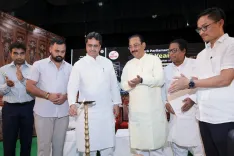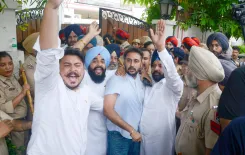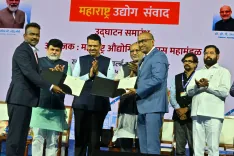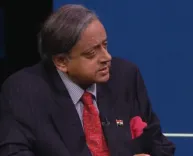Is the Emergency a Dark Chapter in Indian Democracy?
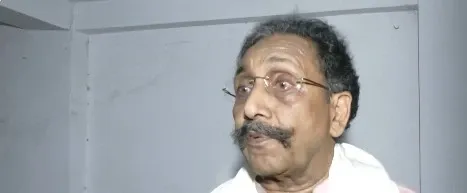
Synopsis
Key Takeaways
- The Emergency lasts from 1975 to 1977, a period marked by oppression.
- Many experienced unlawful arrests and forced sterilizations.
- It serves as a crucial reminder of protecting democracy.
- Indira Gandhi lifted the Emergency in 1977, leading to political shifts.
- Commemorations today highlight the importance of civil liberties.
New Delhi, June 25 (NationPress) As the BJP commemorates the 50th anniversary of the Emergency declared by former Prime Minister Indira Gandhi in 1975, numerous victims of this 20-month-long oppressive period shared their harrowing experiences with IANS — recounting incidents from illegal detentions to coerced sterilizations and systematic oppression.
Harish, a resident of Delhi, vividly recalls the eerie night of June 25, 1975. “We were returning from Ramlila Maidan after attending Jayaprakash Narayan’s speech. Around 2:30 A.M., nearly 20 police officers were stationed outside our home,” he recounted. “My father was taken away to the police station. We assumed he would return within a day or two, but he was imprisoned for a year, and we were denied any visitation.”
Harish reflected on the turmoil that swept through Delhi. “It was sheer chaos. Leaders from the Congress party, including Ambika Soni and Lalit Makan, were forcibly sterilizing individuals. Even students were not exempt from this madness. It was an incredibly dark and traumatic time,” he expressed.
K.L. Malya, another victim, was employed at a bank during the Emergency. “I was suspended for organizing a Satyagraha as part of the RSS. I was imprisoned in Bengaluru for a year,” he revealed.
“We operated underground newspapers to combat censorship. Many families suffered immense financial loss. My engagement had just taken place, but I received unwavering support from my family, who had longstanding ties with the Sangh,” he added.
Pawan Bansal shared the terrifying reality of coerced sterilizations. “Individuals were indiscriminately rounded up and sterilized. Young men, government workers — no one was spared. Those who resisted faced stalled promotions or termination. It was worse than the British rule,” he stated.
“Sanjay Gandhi gained notoriety, cruising the streets in an open jeep, accompanied by Rukhsana Sultana and Ambika Soni. Homes were demolished at will. What transpired should never have occurred,” he lamented.
Sudhir Madan was participating in a 30-day RSS camp in Rohtak when the Emergency was declared. “We were nearing the end of our camp when we received the news. At that time, we didn’t even comprehend what ‘Emergency’ meant. Soon, many of our members were jailed and tortured for standing against it,” he recalled.
On March 21, 1977, Indira Gandhi lifted the Emergency, leading to significant political upheaval in the subsequent elections.
On Wednesday, the BJP is observing the day as Samvidhan Hatya Diwas across Delhi and other regions, labeling it a commemoration of democracy's bleakest chapter. Posters throughout the national capital serve as poignant reminders of a period that many remember with anguish and trepidation.


